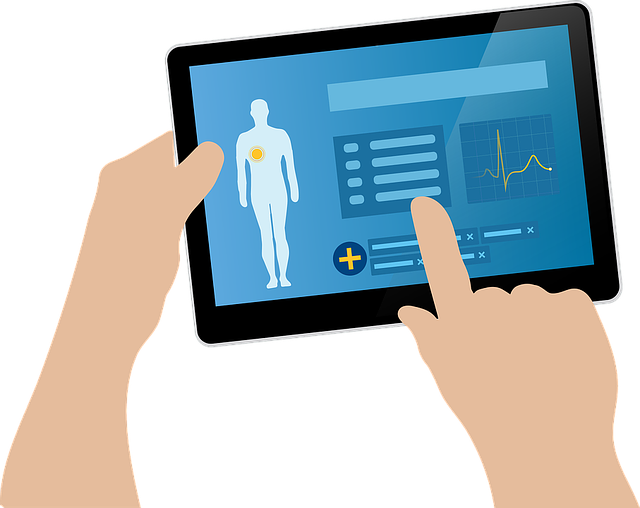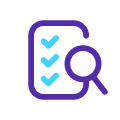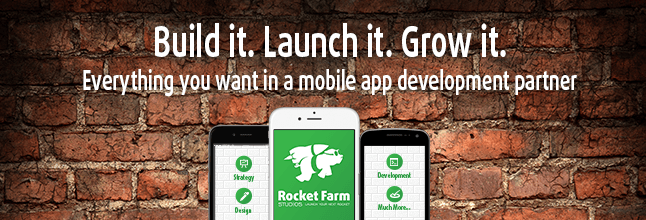Download our E-BOOK
Why Health Care Mobile Apps Matter So Much
November 29, 2016
by Ashley Rondeau

As the United States experiences a presidential transition in the near future, health care will be a hot topic yet again. Will Obamacare be repealed? What parts will be salvaged? Is there something better on the horizon, or something a lot worse? With an aging population and health care costs rising across the board, the country faces an uncertain future of policy. But there’s a silver lining: policy might be hazy, but the future of health care mobile technology is looking bright. And it might just be the medicine the industry, and consumers, need.
Health care apps will save money and lives.
A scary statistic: over 250,000 Americans die each year from medical errors. The only things that kill more of us are heart disease and cancer. Medical errors kill more Americans than car accidents, and how much have we spent on traffic safety over the decades? This is a quiet crisis that needs attention and better technological solutions to mitigate the loss of life. Mobile health care apps are poised to be the difference.
Here’s an example: Rapid Healthcare, a maker of clinical mobile solutions, is currently pushing out Mother’s Milk and Donor Milk that track and verify that the right milk goes to the right infant in the NICU at the right time. The apps are designed to compensate for human error, document each feeding, and hold hospital staff accountable for this simple but crucial task. According to mobihealthnews, “[w]hen the app was piloted at the Pomona Valley Hospital Medical Center, the hospital was able to eliminate dual nurse sign-off and manual workarounds, and also saw reduced costs and liability.”
With this and other initiatives, Rapid Healthcare raised $1 million in new funding. Relatively small potatoes in light of potentially saving many infant lives, as well as reducing costs for hospitals that implement this mobile solution. This is the sort of crucial technology that we should be funding, perhaps on a federal level.
Apps can help treat the largest health care cost.

But let’s get down to where most of our health care money goes: chronic disease. According to the CDC, a whopping “86% of all health care spending in 2010 was for people with one or more chronic medical conditions.” 86%! Forget debating whether to cover 26-year-olds, that’s your problem right there. Anything we can do to whittle down that cost is important, and because so much of chronic illness is preventable with diet and exercise, mobile health care apps are perfectly suited to this problem.
Remember, America is still in an obesity epidemic and caring for 1 in 3 Americans is expensive. More and more health professionals see “active engagement” with their patients to be the best care. Simply put, active engagement is reminding people to eat less and move more often than your typical once-a-year physicals. Rather, a constant reminder that urges patients (or soon-to-be patients) to care for themselves can literally save millions of lives and billions of dollars. In an era when we are facing physician shortages, mobile health care apps on a smartphone people have with them at all times are the perfect tool for this task.
In a study by the CVS Health Research Institute, “interventions to keep patients with chronic disease medication adherent [led] to improved health outcomes and lower medical spending,” and analysis showed that this could save between $38 and $63 million dollars per 100,000 members. Imagine health care apps where these interventions could be scheduled. Perhaps a group video chat to check in with others and a physician? Calendar reminders to take medication, get refills, work out, and eat right? Prerecorded videos from doctors with motivational lessons on care? These apps already exist or are in the works, and demand from consumers is rising.
Mobile health care is on the rise.
The marketplace is starting to pay attention. According to a recent survey of healthcare organizations by Redhat, 82% have a fully implemented mobile strategy, and 78% are seeing positive ROI from their mobile app investments. Because of this success, 36% of the survey respondents said they would develop additional apps in the coming year. This is surprising given that only about half of commercial enterprises have embraced mobile apps. If the health care industry is on the cutting-edge of something, then you better believe it’s something worthwhile.
The demand for these apps are coming internally at the moment, with “more productivity” and “better patient engagement and care” as the top reasons, but Redhat’s survey indicates that in the next year, the demand will mostly come from the patients themselves. As consumers get used to the idea of mobile health care apps, they will quickly become table-stakes technology for health care providers.
Considering that even Baby Boomers are embracing these apps (to the tune of over 75% of Boomers), it’s not a surprise that we are only just beginning to see demand for mobile solutions for personal health care.
The future of health care needs support.
But with all this promise, health care mobile technology is being hampered by budgets. The same responders in the Redhat survey also said that they are running into initial development budget roadblocks, and are only planning to increase IT budgets by about 15% for app development, deployment, and maintenance. And this is happening even though ROI is positive and many studies show that basic technology like smartphone apps will reduce health care spend. The Harvard Business Review cited an app called SmartQuit that showed 2 to 3x more effectiveness than unaided smoking cessation, as just one example.
The research is getting clearer every day: investments into health care app technology today can mean huge savings in the future, both for businesses and for society at large. As America ages, health care mobile tech is an industry that will loom large on our horizon. It behooves enterprises to start building apps that will disrupt traditional health care models, save lives, and grow the industry. It’s about time we embraced a smarter, healthier future.
What do you think of health care mobile apps?
Ready to turn your app idea into a market leader? Partner with Rocket Farm Studios and start your journey from MVP to lasting impact.”
Teams for App Development
We help companies build their
mobile app faster with go to market strategy

Technology and UX Audits

Early Design Sprints

MVP Creation

App Store

Growth Teams
Download Our Free E-Book
Whether you’re launching a new venture or scaling an established product, Rocket Farm Studios is here to turn your vision into reality. Let’s create something extraordinary together. Contact us to learn how we can help you achieve your goals.




